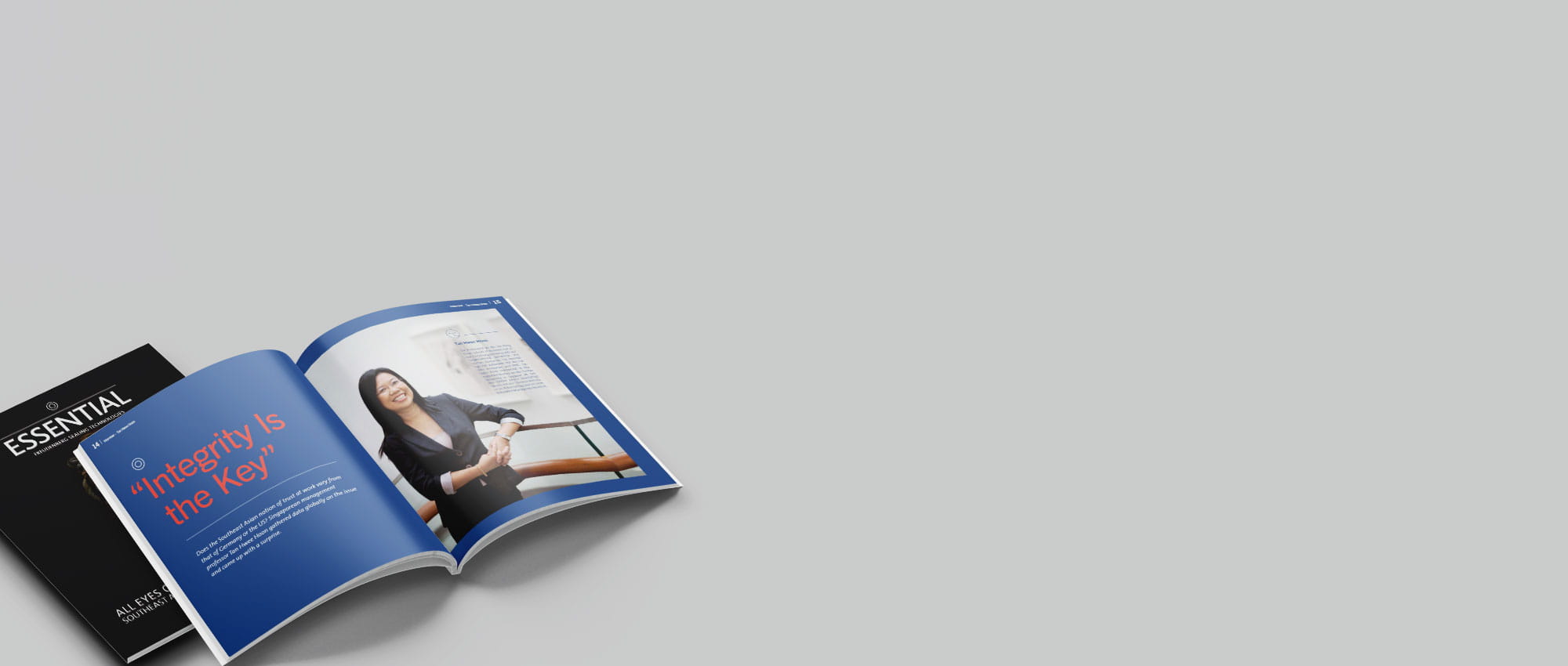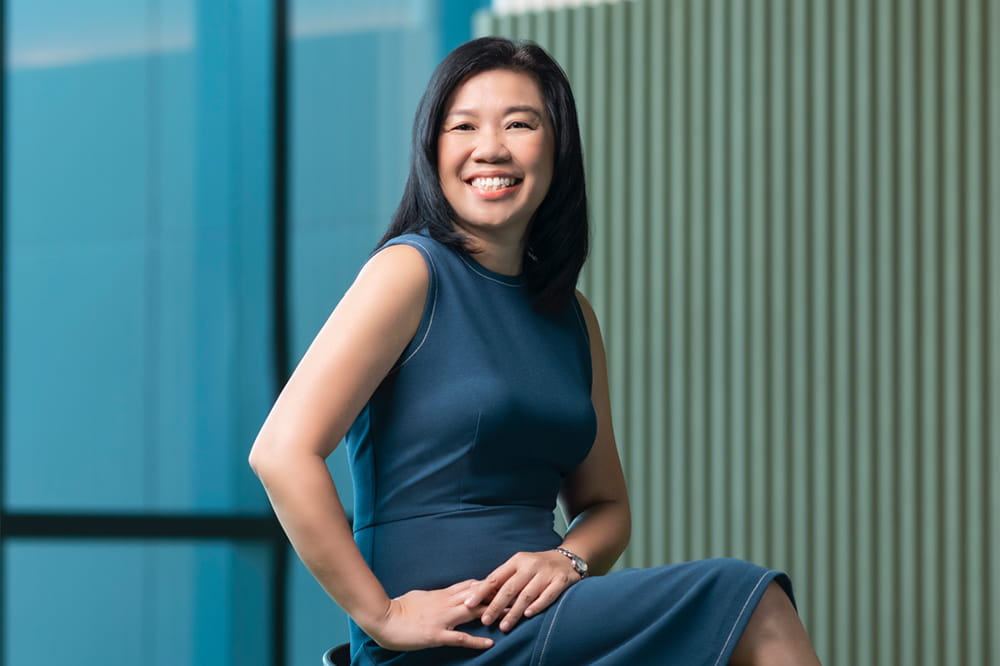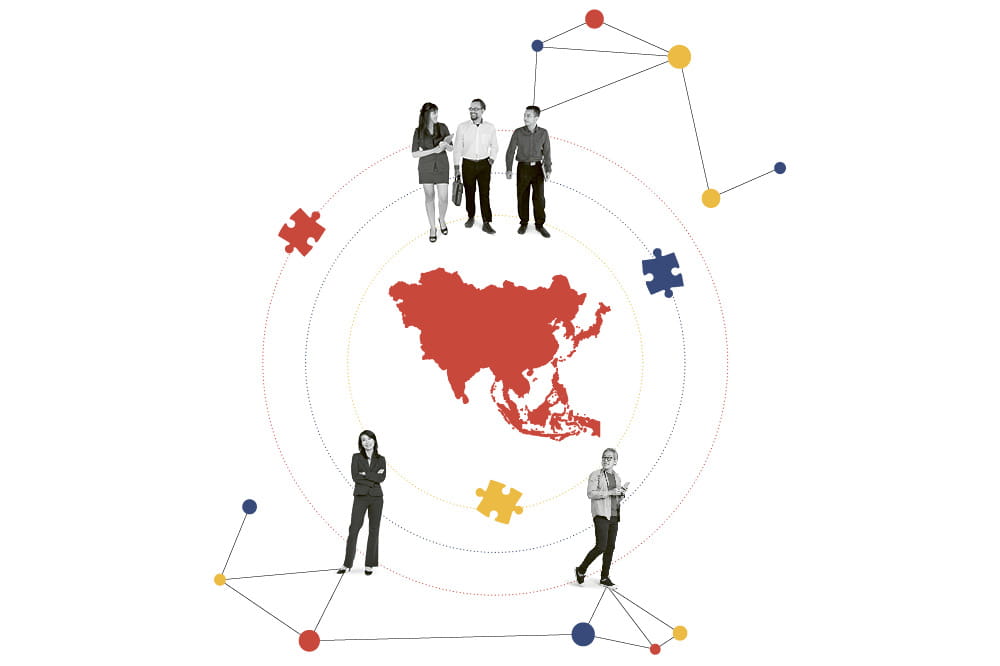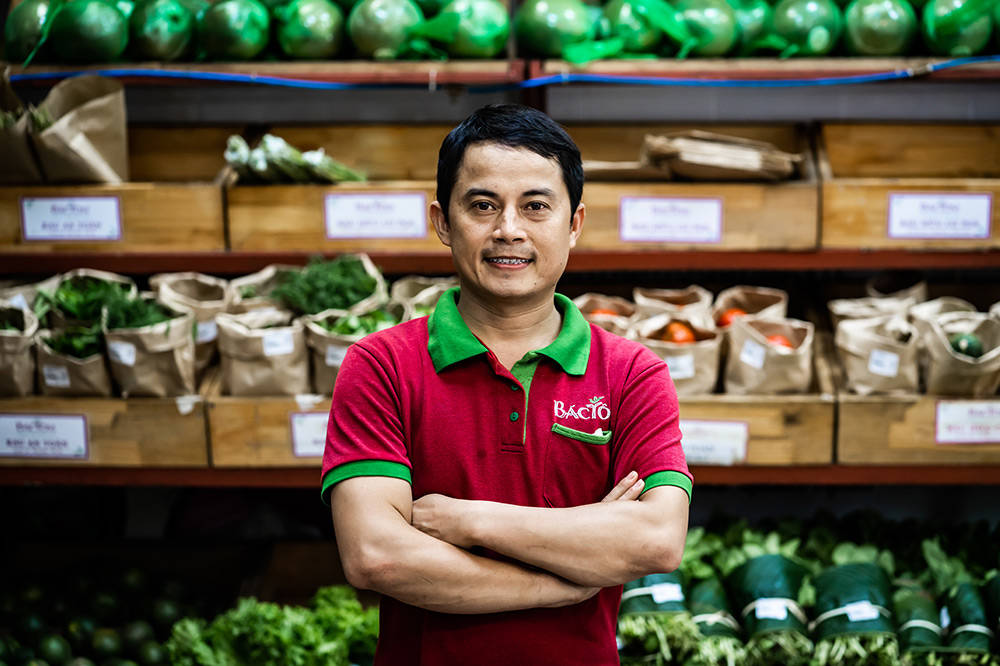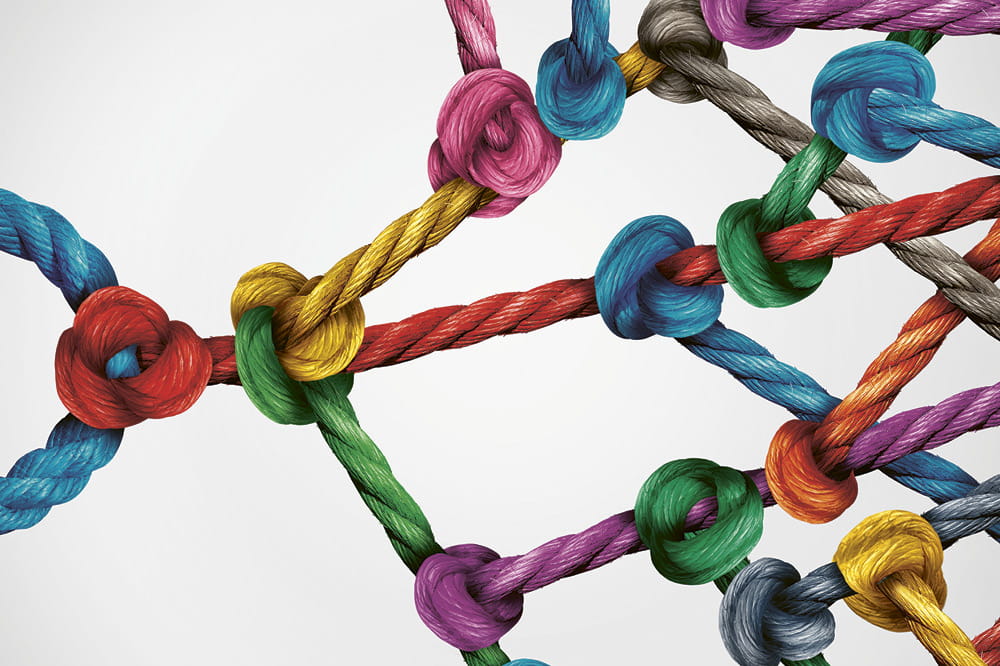Obtain news and background information about sealing technology, get in touch with innovative products – subscribe to the free e-mail newsletter.
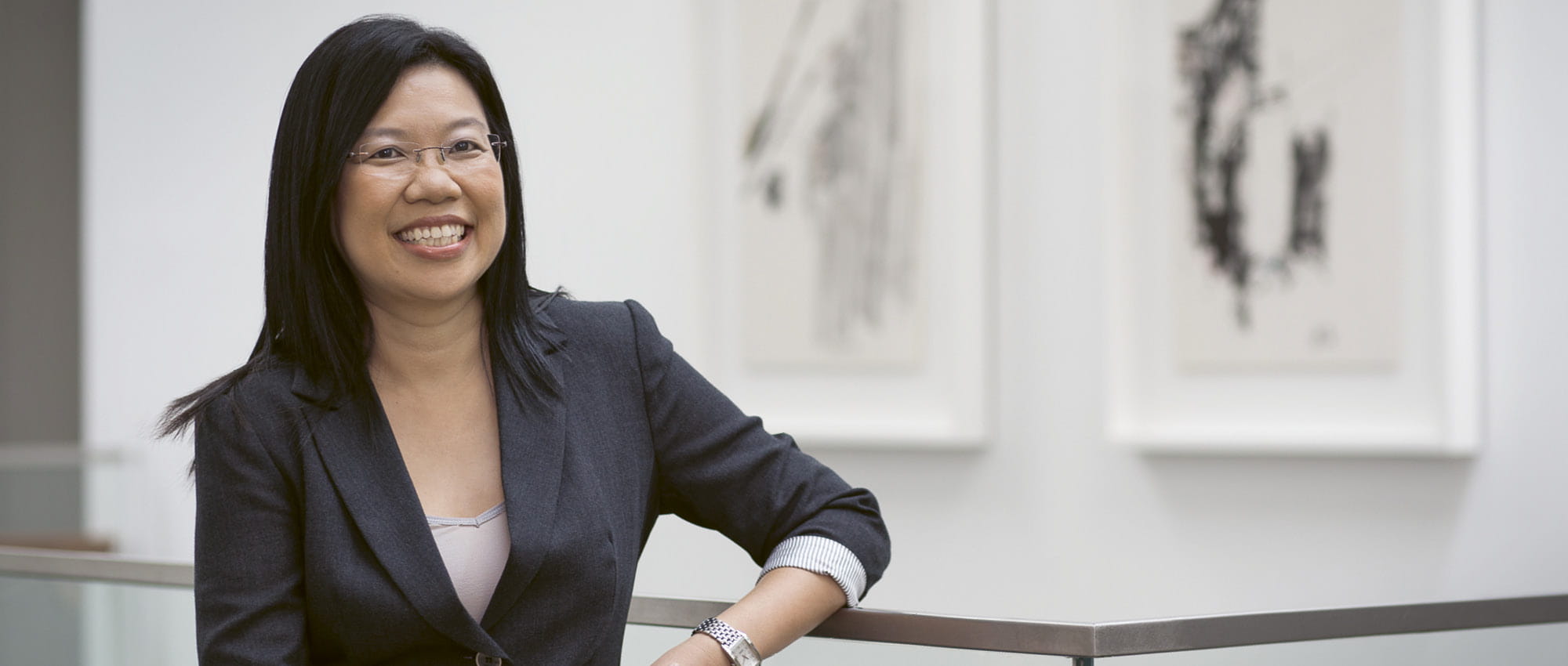
“Integrity is the Key to Trust”
Does the Southeast Asian notion of trust at work vary from that of Germany or the US? Singaporean management professor Tan Hwee Hoon gathered data globally on the issue and came up with a surprise.
Ms. Tan Hwee Hoon, what is trust exactly?
Tan: It is the willingness to be vulnerable. When I trust you, I am opening myself up to injury. The more I trust you, the greater the risk. That, at least, is how one school of thought defines it. The other sees it as confidence, as a positive expectation. I trust someone when I base my judgement on their prior behavior
Tan Hwee Hoon
As a professor at the Lee Kong Chian School of Business, Tan Hwee Hoon has focused her research on organizational behavior and human resources. She is also active in the study of business economics and innovation. Tan earned her doctorate at Purdue University in the United States. She has dealt with topics relating to trust in the workplace and in a cross-cultural management context since the 1990s.
Why do people trust and how does this work on the job?
Tan: Three reasons emerge from the research, and they can take different forms. We have a model called “ABI.” The “A” stands for ability, that is, the skills of the other person: I trust you because you are good at your job. “B” represents benevolence or goodwill. I know you and I believe that you want the best for me, so I trust you. And “I” stands for integrity: I trust you because I am convinced that you are a person who keeps his word, is reliable and lives his values.
Do people in Asia trust differently than those in the United States, for example?
Tan: That was the finding of the first international studies. The researchers involved with the subject initially came from North America. However, when we collected data in Asia, we obtained different responses and findings. Our interviews suggested a greater role for goodwill in Asia, and specifically, China, Singapore, Turkey, and India.
Why might that be the case?
Tan: We know that the feeling of being part of a group is more pronounced in Asia. You see yourself as part of a community. In countries like Germany, your own identity and related issues are more important. What you know professionally and how you perform in your job, that is, your ability, are what counts. In Asia, people place greater emphasis on interpersonal relations. Employees have a stronger focus on whether colleagues or supervisors are interested in them. Are they ready to help when problems arise? That’s why it’s more likely in Asia for an employee to follow a supervisor when he goes to another company.
Where did you get the idea of studying trust?
Tan: I earned my doctorate in the United States in the mid-1990s. At the time, a professor named David Schoorman was doing research on the topic. It occurred to him that we didn’t know what actually led people to trust one another at that point. So, the field of study is comparatively new. I was marginally involved with the studies as a student. When I returned to Singapore, I began doing research on other countries with a colleague from Turkey.
Why didn’t this occur to anyone earlier?
Tan: You know, the field of cross-cultural studies is not always systematic. Researchers compare data from different countries, but a systematic global overview is much less common. Which countries are similar? We wanted to address the topic comprehensively. With a research grant from the United States Airforce Office of Research, we collected data from 20 countries over a four-year period. So far, it is the largest and most extensive study of its kind. It is also “quantitative.” It is not based on extensive interviews. Instead, it provides measurable, comparable data sets.
Our data on productivity is quite clear. Employees who trust their company are more productive.
And the findings?
Tan: They are exciting and surprising: The findings from 19 of the 20 countries were amazingly similar. Integrity was the most important factor in every country. If I impute low integrity to another person, other factors with high ratings offer no benefit at all. I will trust that person the least. This seems to be universal. I admit that we expected much greater differences. The I-factor trumps everything. Integrity is the key. But an interesting secondary finding was that women all around the world are less likely to trust. They need more convincing and make a greater effort to understand things. Men trust more quickly.
What should I consider doing if I am a Western-oriented manager and I want to instill trust in Southeast Asian employees or customers?
Tan: As I mentioned, Asians are more group oriented. In Asia, it is very important to be seen as part of a special “in-group.” It promotes trust to be introduced by someone from the in-group. A good reputation is infectious, so to speak. If you are working in Southeast Asia, you should find ways to join the in-group. You have to show that you have the other person’s best interests in mind and that you are seriously interested in a good relationship. But I have to be frank: Our problem at this point is that the latest data from the study is not reflecting these finding as clearly as we had hoped.
Can it be shown that trust has a direct financial impact? That it contributes to employee productivity and satisfaction?
Tan: Our data on productivity is quite clear. The answer is yes. Employees who trust their company are more productive. Satisfaction is somewhat harder to measure, but we can at least tell from the data that there is a connection between trust and job satisfaction. This has led to some extreme cases: During my interviews at a company in Hyderabad, India, I spoke with employees in deep crisis. The firm’s share price was in freefall, but the staff employees still trusted their management. It turned out that the managers had, in fact, committed fraud.
Are there differences among Asian or Southeast Asian countries?
Tan: Based on earlier studies, we can show that people in Singapore apparently pay more attention to professional skills, that is, to ability than in China, for example. We are more oriented to the West in this regard. We had international companies in Singapore early on. That has certainly shaped our management culture.
And it differentiates Singapore from other countries like Vietnam in the region?
Tan: My impression is that the Vietnamese generally come to trust others more slowly – and that it is hard for us in Singapore to gauge their level of trust accurately. Yet as a researcher, I would stress that I am relying on purely anecdotal evidence. I have had many students from Vietnam from whom I learned that “yes” doesn’t mean they agree with you. It can also mean “yes, but …”.
It promotes trust to be introduced by someone from the in-group. A good reputation is infectious, so to speak.
Is trust expressed in different ways culturally?
Tan: Definitely. From our qualitative interviews, for example, we know that there are clear differences as to whether professional and personal trust are linked. If someone trusts you personally in Turkey or India, it carries over to the workplace. That’s not necessarily the case in Germany or New Zealand. I can trust you on the job, but not personally or vice versa.
Does that bring us back to the “in-group” that is so important in an Asian context?
Tan: Yes. I’ll give you an example. I had an interview with a Singaporean businessman, and I asked him how he makes a decision on whether to trust someone. He told me he was once at the home of an employee and his family during the Chinese New Year’s festival, the most important holiday of the year, and he noted whether the man was respectful to his parents. In Asia, respect for parents or “filial piety” is a very important value. Of course, you can ask what this has to do with trusting the individual on the job. But in our region, the personal and the professional blend together. In the United States, on the other hand, there is a much greater distinction between personal and professional lives.
Are people more trusting in Southeast Asia?
Tan: Not necessarily. When I outlined the model to people suggesting that the more you trust and the less you monitor, the more vulnerable you are, some people had this response: No matter what my level of trust is, I am going to monitor anyway. Verifying goes without saying.
Germans have a proverb that basically translates as “Trust but verify.”
Tan: (laughs) Yes, that sums it up. No one trusts completely. People always trust only to a point. Or in certain areas, but not others.
This article originally appeared in ESSENTIAL, Freudenberg Sealing Technologies’ corporate magazine that covers trends, industries and new ideas. To read more stories like this, click here.
More Stories About Sustainability
